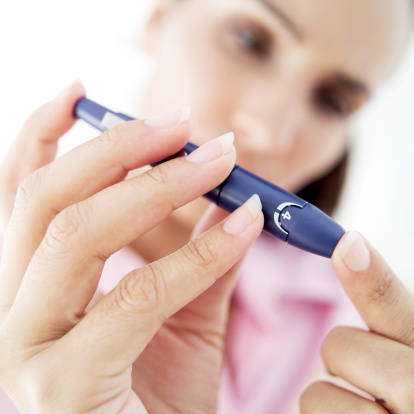Find The Diabetes Support You Need
Support is an important part of caring for diabetes. It is easier to do all of the daily work of diabetes care and to make and maintain behavior changes when you have help from others. Support groups can provide this type of help. You benefit from the experience of others in the group and can also offer help to others as you learn about your diabetes. If you have considered joining a support group, you may have wondered how to find a group that will meet your needs.
Many hospitals and other organizations, such as churches and synagogues, sponsor support groups. Your health care providers may be able to help you find a support group in your area. Your diabetes educators might run or be involved with facilitating support groups in your area. If these people can’t help you find a support group that suits your needs, you can call the American Diabetes Association at (800) DIABETES.
Not all support groups are the same. Some increase your knowledge of diabetes by inviting guest speakers who are diabetes experts. Others provide support from experts or peers in solving problems and living with diabetes on a day-to-day basis. Some are for specific groups of people. For example, there are groups specifically for people with type 1 diabetes, adolescents with type 1 diabetes, parents of children with diabetes or older adults with type 2 diabetes. Some are led by professionals and others are led by people with diabetes. Some support groups result from a group class that wants to continue to meet when the diabetes education program is finished.
If there is no support group in your area, you may decide to start one. A good place to begin is to talk with diabetes or health educators in your area. They may be able to help you by suggesting places to meet, recruiting speakers and advertising your group to other people with diabetes. A diabetes educator may be willing to work with you or help you find others who will. If they offer group classes, you may be able to attend and tell the class about your plans and ask the group members about their interest. If there are support groups for other illnesses, you might want to attend as an observer and see how these groups function. The leaders of these groups can also offer helpful advice.
The next step is to establish a mission statement for your group. Define the goals, strategies to meet your goals and ways that you will know if you are meeting your goals and the needs of participants. The mission statement will help you determine the format of the group and your target audience.
It may be a challenge to find a place to meet and to do no-cost advertising, but your chamber of commerce or other community service organizations may be able to offer suggestions. Some community newspapers offer free advertising space for community events. Hospitals, schools and churches may be willing to provide a space for you to meet.
It is a good idea to hold an organizational meeting for your first session. This will give you an idea about who is interested and who is likely to attend. Do not be discouraged if the initial attendance is small. Most groups start small and grow as participants invite others to attend. At this organizational meeting, you can find others who are willing to help and learn about the best format for the group.
You may want to start with a brief ice-breaker activity or by asking people to introduce themselves and talk about their experiences with diabetes. You might ask each person to find a partner he or she does not know and spend a few minutes talking together. Then have each person introduce their partner to the group by sharing what they learned. This helps each person to establish a connection with one other person in the room. Introductions not only help the group get to know each other, but they also help you learn more about the group and everyone’s needs.
Things to decide at your first meeting:
- How the group will function.
- Ground rules to run the group.
- The formality of the meetings.
- When and how often the group will meet.
- Who will help with the planning and conduct of the group.
- Special talents, resources or contacts of group members.
- Possible activities everyone is interested in.
Before the meeting ends, decide if there is enough interest for the group to continue meeting, and if so, set the time and date of the next meeting.
After the meeting, reflect on your experience. Think about what worked well and what did not work as well. Did all of the members participate? Did the group seem to respond positively? Was the session too free-flowing or too structured? Were the members supportive of each other or critical? What might you do differently next time? These are good questions for reflection after each subsequent meeting, as well.
If starting a diabetes support group sounds too hard, you may choose to attend a different type of group. For example, many community centers offer groups for weight loss and exercise. These give you support in many aspects of your life, including diabetes.
The important goal is to get the support you need. Family members, friends, groups and other people with diabetes can all be a help and support for you as you live with diabetes.









